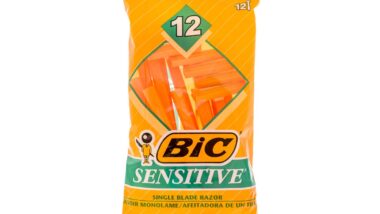Top Class Actions’s website and social media posts use affiliate links. If you make a purchase using such links, we may receive a commission, but it will not result in any additional charges to you. Please review our Affiliate Link Disclosure for more information.
This article is not legal advice. It is presented
for informational purposes only.

According to that lawsuit, the amphetamine-like stimulant BMPEA was used in GNC diet pills sold as supplements. As argued in the lawsuit, those ingredients were not approved for human use in the United States and were not considered natural. The lawsuit argued that GNC store was responsible for hiding ingredients like these in botanical supplements in which consumers would not have expected to find BMPEA.
A New England Journal of Medicine study estimated that supplements cause up to 23,000 emergency department visits every single year. More studies have been identifying that dietary and nutritional supplements contain untested chemicals and illegal pharmaceuticals, putting consumers at risk.
A GNC diet pill class action lawsuit was filed in November 2015, arguing that GNC was selling products that contain not just BMPEA but a drug known as picamilon. The plaintiff said that using the Redline Ultra Hardcore supplement led to his discovery of illegal drugs inside. The FDA had already issued warning letters to five different companies that were selling products containing BMPEA at that point in time.
The Oregon lawsuit argued that GNC was responsible for repeatedly violating the state’s Unlawful Trade Practices Act and argued that the company was liable for false advertising because it allegedly failed to inform consumers about the possibility of serious issues due to using products that were unregulated and not approved for human use in the United States.
In recent years, much government regulation and oversight has focused on supplements and diet pills. From claims that diet pills were unreasonably dangerous to allegations that companies are using misleading ad claims to encourage purchases, federal agencies have cracked down on behavior they believe put consumers at risk.
This has come in the form of more regulations, lawsuits, and methods for capturing consumer complaints and cases.
Supplements and False Advertising
Supplements are some of the products most often named in investigations over false advertising. The U.S. government has strict rules about what companies can say and what kinds of evidence must be provided when claims are made. If a company allows a product to go on the market with false or misleading advertising, consumers can exercise rights to target the maker or seller in a lawsuit.
The FDA evaluates advertising claims closely on a general basis but particularly when they relate to claims about dietary supplements. Buyers who believe that a company has violated multiple laws, including those surrounding false advertising may be eligible to take legal action.
Some of these consumers directly turn to the FDA to file complaints and others choose to file lawsuits after their discovery that a company is allegedly violating state or federal laws. Other GNC products could contain concerning ingredients that might lead to further claims of false advertising.
Join a Free GNC Class Action Lawsuit Investigation
If you purchased GNC brand supplements, you may qualify to join this GNC supplements false advertising class action lawsuit investigation.
ATTORNEY ADVERTISING
Top Class Actions is a Proud Member of the American Bar Association
LEGAL INFORMATION IS NOT LEGAL ADVICE
Top Class Actions Legal Statement
©2008 – 2024 Top Class Actions® LLC
Various Trademarks held by their respective owners
This website is not intended for viewing or usage by European Union citizens.















18 thoughts onGNC Diet Pills Drew Claims of False Advertising from State Attorneys General
add me
Add me……